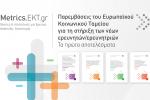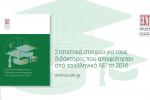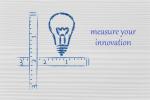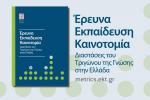
In 2018, Research & Development (R&D) expenditure in the business enterprise sector exceeded 1 billion euro, reaching 1049.5 million euro, according to preliminary data released by the National Documentation Centre and transmitted to Eurostat. Publication of the indicators is part of EKT’s regular production of official Research, Development and Innovation statistics for Greece as National authority of the Hellenic Statistical System. This latest national statistical survey of the country’s R&D expenditure was carried out by EKT in 2019. It surveyed 3,500 organisations from four sectors: Business Enterprise (BES), Higher education (HES), Government (GOV) and Private non-profit institutions (PNP).
In 2018, total R&D expenditure in Greece for all sectors was 2,174.67 million euro, an increase of 6.7% compared to 2017. The R&D Intensity indicator, which represents R&D expenditure as a percentage of GDP, rose to 1.18% from 1.13% 2017.
The main contributor to total R&D expenditure was the Business Enterprise sector with 1,049.5 million euro (0.57% of GDP), a rise of 5.6% in relation to 2017.
Increases in R&D expenditures were also recorded for the other three sectors. Higher education sector expenditures amounted to 618.58 million euro (0.345 of GDP), an increase of 7.2% in comparison with 2017. Government sector expenditures were 484.95 million euro (0.26% of GDP), a 7.5% rise and expenditures in the private non-profit sector came to 21.64 million euro (0.01% of GDP) an increase of 32%.
In terms of funding sources for R&D expenditures in 2018, the business enterprise sector spent the highest amount, 926.23 million euro (42.6% of total expenditure). The bulk of this, 855.10 million euro, was invested in the R&D of the businesses themselves. The remainder funded R&D in higher education (52.36 million euro), the government sector (16.12 million euro) and the private non-profit institutions sector (2.65 million euro). State funding was the second main source with 883.33 million euro (40.6% of total). This was comprised of the ordinary budget, the Public Investment Programme and the NSRF 2014-2020.
There was a significant increase in expenditures funded by the National Strategic Reference Framework (NSRF) in 2018. NSRF funding for R&D expenditures was 149.80 million euro, twice that of 2017 (an increase of 107.0%) and covered all sectors: business (58.72 million euro), higher education (45.69 million euro), government (44.25 million euro) and private non-profit institutions (1.14 million euro). Funding from the ordinary budget was also higher, with funding for R&D expenditures amounting to 629.87 million euro in higher education (336.25 million euro) and the government sector (293.62 million euro).
The European Union was the third key source of R&D funding, with 222.45 million euro (10.2% of total), approximately equal to that of 2017. The EU funded research projects in all sectors, mainly through Horizon 2020, the current Research and Innovation Programme, in which Greek players have long performed well.
Based on the new data, Greece is ranked 18th among the EU28 in terms of the R&D Intensity indicator (R&D expenditures as percentage of GDP).
The statistics and indicators for Research, Development and Innovation in Greece, which are produced and issued by EKT, are regularly transmitted to Eurostat and the OECD. Data analysis and extraction of relevant indicators are published in print and are available online at EKT’s updated website metrics.ekt.gr.















